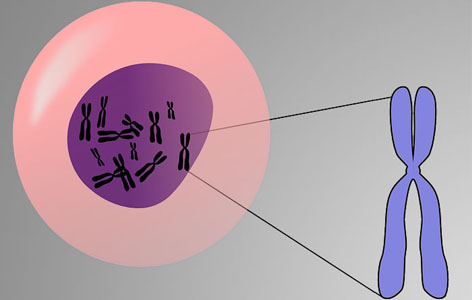
Schizophrenia is a brain disorder that causes people to experience hallucinations, delusions and disordered thinking. Selecting the right combination of medication and dosage to treat each patient's symptoms remains a significant challenge.
One possible solution to this problem is the use of genetic testing to help identify which treatments may work best at what dose for which individuals. Recently, TGHRI Senior Scientist Dr. Anne Bassett showed that this approach may provide new insight into the clinical effects of clozapine—an important drug prescribed to treat schizophrenia.
The study, led by PhD student Nancy Butcher, examined the medical records of 40 people with schizophrenia who had been prescribed clozapine. Half of these people had a genetic form of schizophrenia caused by a small missing piece of chromosome 22, known as the 22q11.2 deletion syndrome. Chromosomes consist of DNA and proteins and contain the majority of a person's genetic information. Researchers found that people with the 22q11.2 deletion could be treated with significantly lower doses of clozapine than those with a full chromosome. Moreover, they showed that people with the 22q11.2 deletion were more likely to experience serious—though largely manageable—side effects such as seizures, dangerously low levels of white blood cells and inflammation of the heart wall.
"These findings serve as a proof-of-principle for personalized medicine in psychiatry and provide evidence of the utility of clinical genetic testing for schizophrenia." says Dr. Bassett.
This work was supported by the Canadian Institutes of Health Research, Brain Canada, the Brain and Behavior Research Foundation, the Toronto General & Western Hospital Foundation, the Dalglish Chair in 22q11.2 Deletion Syndrome, and The Dalglish Family Hearts and Minds Clinic for Adults with 22q11.2 Deletion Syndrome. Dr. Bassett holds a Tier 1 Canada Research Chair in Schizophrenia Genetics and Genomic Disorders.
Response to clozapine in a clinically identifiable subtype of schizophrenia. Butcher NJ, Fung WL, Fitzpatrick L, Guna A, Andrade DM, Lang AE, Chow EW, Bassett AS. The British Journal of Psychiatry. 2015 March 5. [Pubmed abstract]




